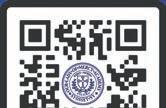


















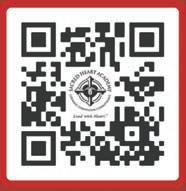























It was the best of times; it was the worst of times: the endless road-trips
I took with each of my three children during their high school years (and the summers in between) so that they could visit potential “dream schools” and “try them on for size.”
Aside from racking up points at assorted national hotel chains and eating far too many fast-food burgers and fries, hours on end in a car with my teenagers was an experience to be remembered. Meticulously plotting out drives to maximize every mile and giving up control of all music choices from start to finish, these rite-of-passage journeys were actually incredible memory-making adventures that I wouldn’t trade for the world. And the majority of time on the trips, my sons and daughter actually enjoyed my company.
That is until I started asking questions during the campus tours and open house programs. (Cue the huge eye-roll and exhaustive sigh from the teenager to your left). I felt compelled to go beyond the glossy brochures, carefully curated websites and the well-trained tour guides in order to get a real picture of what it meant to be a student at each of the schools. In the end, my kids were happy to have the information so that they could make the application choices that were best for each of them.
In order to save your child enormous embarrassment, I give you the top 10 questions that truly helped to inform our family’s decisions along the college application trail.

1How will I select my academic advisor and what will our interactions be like as I progress through my time at the school?
If your kids are anything like mine, some will “know exactly” what they want to major in and others will “have no clue.” What they have in common is the need to develop a consistent guidance/ mentor relationship with an academic advisor who not only helps them to get signed into classes, but who helps them discover opportunities they didn’t know existed and to ask the questions they didn’t even know they were supposed to ask. Understanding how your child will be paired with an advisor, how frequently they will connect, what resources are available to track their progress and how to discover new possibilities is an important factor when comparing schools to one another.
2How soon can I start working with the career center so that I’m ready to stand out when looking for a job after college?
So many students wait until their senior year to visit the career center, thinking that all they need to do is get some help putting together a résumé and crafting a cover letter and finding out what databases are best for job hunters. What a lost opportunity. Career centers can and should be a part of the college experience right from the first-year of school. Whether it is taking interest and personality assessments, researching industries and individual companies, practicing interview skills or getting connected with College alumni to serve as career mentors, my children sought out this incredible resource from the very start. Not only had they collected a wide array of internship experiences along the way, but they also had a living, breathing résumé at graduation and a networking pool to guide them in the right direction.
3
How many students go home for the weekend on a regular basis?
What’s campus life like on the weekends?
Back in the old days, schools where most of the students went home on the weekends were known as “suitcase colleges.” This isn’t necessarily a bad circumstance, but it is one that will weigh into your child’s decision process. Life outside of the classroom provides as much (and sometimes more.) growth, development and learning experiences as lectures and labs. Will my child be one of only a few students in the residence halls over the weekends? What if we live too far away for her to come home more than just for big holidays and breaks? Are there enough on-campus activities offered so that no matter what students don’t always have to leave campus to find their own fun? Are libraries open and what are the hours? Are the hours extended during exam periods?
Are classes typically taught by full-time professors, adjuncts or graduate students? How
accessible is the faculty for tutoring or extra help?
When we read ranking lists about colleges, we see categories like faculty-to-student ratio and average class size. These are helpful, but don’t completely give a full picture. At many large, complex and “prestigious” universities, the rock-star faculty are more engaged in critical research and working closely with students in the graduate programs on their post-undergraduate study than we realize. When this is the case, colleges will rely on part-time visiting faculty members (called adjuncts) who often teach individual classes at several schools. Or, they may rely on graduate assistants to run the lectures or study sessions. Again, this is not inherently a bad thing. But it is an important factor when comparing experiences at different schools.
How’s the Wi-Fi on campus? Do I need to bring my own printer and modem for the residence halls? Do I need to pay for printing see COLLEGE TOURS on page 6B
Artificial Intelligence (AI) has made significant inroads into higher education, promising to transform the way institutions operate and students learn. Like any technological innovation, AI in higher education comes with its share of pros and cons.
Personalized Learning
AI enables personalized learning experiences for students. It can analyze individual learning styles, strengths, and weaknesses, then adapt the curriculum accordingly. This personalization increases student engagement and helps learners progress at their own pace.
Efficient Administrative Tasks
AI-driven chatbots and automation systems handle administrative tasks such as admissions, enrollment, and student support efficiently. This frees up administrative staff to focus on more complex responsibilities, ultimately reducing administrative overhead.
Enhanced Research
AI aids in data analysis and research.
It can process large datasets quickly and discover patterns and insights that might be missed by human researchers. In fields like medicine, AI accelerates drug discovery and healthcare research.
Predictive Analytics
AI can predict student success or identify those at risk of dropping out. By analyzing data on attendance, coursework performance, and engagement, institutions can intervene early to provide support and improve student retention rates.
Accessibility and Inclusivity
AI can make education more accessible to students with disabilities. Speech recognition and text-to-speech technology, for example, assist students with hearing or visual impairments. This fosters inclusivity in higher education.
Bias and Fairness
AI algorithms can inherit biases present in their training data. This could result in unfair or discriminatory outcomes in areas such as admissions or grading. It is essential to continually monitor and address bias in AI systems.
Depersonalization
While AI offers personalized learning, it
may lead to a lack of personal interaction between students and educators. This depersonalization can hinder the development of mentor-student relationships, which are vital for holistic education.
Privacy Concerns
AI systems often collect and analyze a vast amount of student data, raising concerns about privacy. Institutions must take measures to protect sensitive information and ensure compliance with data protection regulations like General Data Protection Regulation (GDPR).
Resource Requirements
Implementing AI systems in higher education requires significant financial and human resources. Not all institutions have the funds or expertise needed for effective AI integration.
Job Displacement Concerns
Automation of administrative tasks using AI can raise concerns about job displacement for administrative staff. Institutions must balance the benefits of automation with the potential impact on employees.
Ethical Dilemmas
AI can present ethical dilemmas in education, such as the use of AI-driven surveillance in online proctoring. Balancing the need for academic integrity with student privacy and fairness can be challenging.
AI systems can be complex to implement and maintain. Institutions may face technical challenges in terms of infrastructure, data management, and system compatibility.


Overreliance on Technology
An overreliance on AI technology may lead to a loss of critical thinking and problem-solving skills among students. Traditional teaching methods and human interaction remain essential for a well-rounded education.
AI in higher education offers numerous advantages, including personalized learning, administrative efficiency, enhanced research capabilities, and improved predictive analytics. It also raises concerns related to privacy, bias, depersonalization, resource requirements, job displacement, technical challenges, ethical dilemmas, and overreliance on technology. To harness the benefits of AI while mitigating the drawbacks, institutions must carefully plan and implement AI solutions, maintain transparency and fairness, and prioritize the ethical and educational needs of their students.
—With assistance from ChatGPT, a chatbot that uses AI to generate natural language responses to help with various tasks such as answering questions, writing emails, essays, etc.
Winston Preparatory School Long Island offers highly-individualized programming for students with learning differences, including dyslexia, ADHD and nonverbal learning disorder (NVLD).
Register for an upcoming Open House at winstonprep.edu or contact our Director of Admissions, Michele Bellantoni, at mbellantoni@winstonprep.edu

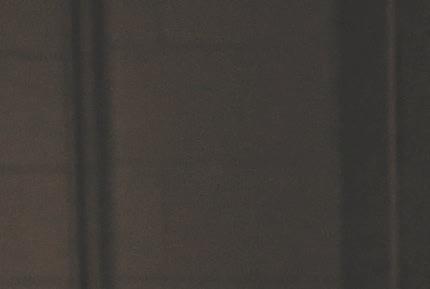























out papers? Are the washing machines coin-operated or do I need to put money on a card? Is there inter-campus transportation and if so, is there a way to know where the shuttles are via an app? Are there blue safety lights/alarm stations across campus?
This information is far from front-ofmind when students set foot on a dreamy college campus. Yet the answers to these questions will play a role in their everyday lives, whether they are commuters or residential students. There are of course no “right or wrong” answers to these questions but knowing what you’re getting is important.
6Does tuition increase every year? If so, what is the average tuition increase? What about room and board charges? Will my scholarship and/or financial aid go up along with the increases in costs? Are there opportunities to earn additional scholarships as I go through each year? Are there on-campus jobs to help me earn pocket money? How many upperclassmen move off campus and when? Does the college help me find a place off campus? What is the typical rent in the area?
Again, not the “sexiest” of topics to think about, but students and families often are so focused on the first year that they might not anticipate unexpected additional costs along the way. Being


able to plan out costs over the full college experience is important when narrowing down selections.
authorizes you to have access, you will be good to go.

7
What is the biggest complaint students have about “XYZ University”? If you could choose to come here again, would you?

It may seem funny to ask the question this way, but remember, when you’re on tour or at an open house, everything is set up to be as perfect as possible. (Don’t we do the same thing when we have guests over at our homes for dinner?) Absolutely no school is perfect and absolutely no school pleases 100 percent of the students, 100 percent of the time. That’s not realistic. But you can certainly ask your tour guides, students in the library, advisors, admissions representatives, faculty and even the cafeteria team to share their insights on this.
8
Is there a parent organization so that my “intrusive and needy” parents can get updates on important information?
Okay, maybe I worded that a bit harshly, but you get the idea. It can be hard for parents to accept that their children are now adults. Once they turn 18, the school not only won’t, but can’t share certain information with you as the parent. Yes, even if you are the one paying tuition. Understanding if there is a channel just for parents can help reassure the whole family. Often there are parent portals and once your child

9

Will I get to select my own roommate? How does that work? What if I don’t get along with my roommate?
This is way, way up there on the minds of incoming college students and it makes perfect sense. Just understanding how it all works eases the fear and uncertainty and get them excited about meeting their new roomies.
10
What are some of your favorite “XYZ University” traditions?


Whether it’s leaving candy on the statue of the mascot before finals week or the senior clap-out down the main campus road at graduation, feeling like you belong to the community is so important to a successful experience. Are there pep-rallies before big games? Is there a sophomore year study abroad opportunity? Does everyone sing the school song in the quad on opening day? You get the idea. Remember, it’s not just about classes and careers and outcomes. It’s a journey that is designed to be remembered for a lifetime.
Dr. Jacquelyn Nealon has spent the last 30 years as a vice president for enrollment, marketing and communications at many prestigious colleges and universities. She currently enjoys her role as the executive director of enrollment and marketing at Sacred Heart Academy, a Catholic, all-girls, college-preparatory high school on Long Island. But her most significant role has always been and will always be that of “mom” to her three children.


Choosing a college-level internship is a pivotal decision that can significantly shape your academic and professional journey. It’s more than just an opportunity to pad your résumé; it’s a chance to gain real-world experience, build valuable connections, and clarify your career goals. To make the most of this crucial step, there are three essential factors you must consider:


One of the most crucial aspects to consider when selecting a college-level internship is how closely it aligns with your career goals and aspirations. Internships offer a handson experience in a specific field, allowing you to test the waters and see if it’s the right fit for you. Before applying, take the time to reflect on your long-term career objectives. What industries or roles are you interested in? What skills do you want to develop?
Identifying your goals will help you narrow down potential internship opportunities.
Research the organizations and companies offering internships. Consider their reputation, values, and the nature of their work.



An internship at a prestigious company may look great on your résumé, but it might not provide the experience you need if it doesn’t align with your career goals. A lesser-known organization may offer more hands-on experience and mentorship in your desired field. Always prioritize the substance of the


internship over its prestige. Reach out to professionals in your chosen field or your college’s career services department for guidance and advice. They can help you determine which internships will provide the best foundation for your career path.
An internship is not just about completing tasks; it’s an opportunity for personal and professional growth. Look for internships that offer mentorship and learning
opportunities. Working closely with experienced professionals can accelerate your development, provide valuable insights, and help you build a network of industry contacts. During the application process, inquire about the level of mentorship and training that interns receive. Will you have regular meetings with a supervisor or mentor to discuss your progress and goals? Are there opportunities for skill-building workshops or training sessions? Are you encouraged to take on challenging projects that will
expand your knowledge and skills? A strong mentorship component can make a significant difference in the quality of your internship experience.
Consider the company culture and whether it promotes a learning environment. A supportive culture that values employee growth will likely provide you with more opportunities to learn and grow during your internship.







Give your student the tools they need to succeed in the classroom. Hofstra Youth Academy offers over 30 classes taught by New York State certified teachers and/or industry professionals in academics, fine and studio arts, enrichment, athletics, and video game development. Students in Pre-K through 12th grade benefit from Hofstra’s state-of-the-art facilities and our small class sizes allow for group and individual instruction.
Fall academic classes begin Saturday, October 14 and swim begins Saturday, October 21.
For more information or to register, visit ce.hofstra.edu/youth or contact us at 516-463-7400.
Save $25 per class





Networking is a critical aspect of any internship. It can open doors to future job opportunities and help you establish a solid foundation in your chosen field. When evaluating potential internships, think about the networking potential they offer.
Research the organizations’ alumni networks and their relationships with other companies in your industry. An internship at a company with strong industry connections can lead to valuable introductions and job prospects down the road. Attend industry events and conferences if possible, as they can be excellent opportunities to expand your professional network.
Consider the potential for a post-internship job offer. Many companies use


internships as a talent pipeline, and if you excel during your internship, you may be offered a full-time position upon graduation. Ask about the company’s history of hiring interns and the criteria they use to make such decisions.





Choosing an internship is a decision that should be made carefully, considering your career goals, mentorship and learning opportunities, and networking potential. By selecting an internship that aligns with your aspirations, provides valuable guidance, and offers networking opportunities, you can make the most of this formative experience and set yourself up for success in your future career. Remember that the right internship can be pivotal towards achieving your long-term goals.
—Anton Media Staff



 JAMES ROONEY editors@antonmediagroup.com
JAMES ROONEY editors@antonmediagroup.com
The proper words to describe my internship at Anton Media Group are hard to describe. For a little bit of background, I graduated from SUNY Old Westbury with a degree in Media and Communications (essentially journalism with a different name) in May of 2023 after finishing my classes the previous year. And a mere four months later, I found myself here in a vocation related to my degree. Before I got here, I worked in retail for two years before having to quit because of the COVID pandemic. While I was in retail, I genuinely thought that it would take years for me to take my first steps in my chosen career path. Needless to say, my predictions could not be further from the truth. In that same vein, my expectation for this internship couldn’t be more inaccurate. Media today describes interns as experts in busy work who have nothing to do with the business itself, fetching coffee and other things for the actually important people. But when I first entered the office, I was being taught how to write for the paper. A week after
that, I was reporting on local events I found interest in. From the first phone call with my now editor Lauren Feldman to when I am now writing this report, I felt needed, productive, and important. If you want an experience that will give you real knowledge and wisdom in the field of journalism, intern at Anton Media Group. My education did indeed give me a solid foundation for the field, but nothing can compare to what I learned here. For example, I learned more about how photo credit works in one single meeting than four years of college ever taught me. Here, I feel I can be creative with little to no judgment. I can use that creativity and have it be rewarded with my name and face published for the first time in my life. For that, I am grateful to be here.
After all the hard work and excitement of getting a young student into college, they will soon be heading off to campus and beginning their journey to becoming independent adults. Parents have been anticipating and planning for this day and may have a solid plan to cover the tuition bill, but there can be many additional hidden costs as well as the challenges of keeping students with newfound freedom on a budget. To help navigate having a college student away from home, AAA Northeast Director of Student Lending and College Services Donald Kerr offers these financial tips.

Textbooks
Instead of buying new books consider used books or even renting books. Once a student starts to make friends they may have the same classes and could consider sharing a book with them. If possible verify with the professor that they will be using the recommended books before the class starts.
Parking
Leave the car at home as there are lots of costs associated with having a car on campus.
Off-campus housing
Consider sharing an apartment with multiple roommates off campus to offset the dorm costs. Students can still use a campus-based meal plan or cook their own meals for additional savings.
Fitness
Use the school gym if available instead of paying for a private gym. A bicycle is a good way to get exercise and can help save on transportation costs as well.
Scholarships
Many students look for scholarships but find it a frustrating and overwhelming process. Staying determined and applying for scholarships the entire time they are in college can pay off even if they win a small scholarship.
Food
Consider the students’ lifestyle when choosing a meal plan. If your student usually skips breakfast don’t spend the
money on three meals a day. Instead of stopping at that brand name café brew a cup of coffee in the dorm room. Little choices like this can add up to big savings.
Club and organization fees
Students like to join campus clubs or organizations to meet students with similar interests and many of these clubs charge fees.
Sorority and fraternity
Students can seek out or be recruited to join these organizations for many different reasons but there can also be
additional costs as well.
Professional clothes
When packing, not many students think about suits or professional attire but if the student is looking for an internship, part-time job or other type of interview they may be making a quick trip to a local outlet or mall.
Entertainment
Once on campus your student will make friends which can lead to nights out at the movies, restaurants, local concerts and other expenses.
Transportation costs
Even if you have accounted for the cost of flying your student halfway across the
country for college, once they get on campus they are going to want to explore the local area shops, restaurants and entertainment venues which means they will be taking Ubers, cabs and buses.
If your student is not going that far and plans to take their car, they will have to get a parking pass, oil changes, gas and insurance.
Keep track of spending
This is one of the most important things but can also be one of the hardest things to do for a college student that already has a busy schedule. Using budgeting apps can simplify this process and keep students engaged. Mint and Pocket Guard are two popular budget apps.
Students always call home for money as soon as they run out. Parents can use a reloadable debit card so they can keep track of how much money the student is using. Start with a small amount to keep your student from overspending.
Spending habits
If you start with a small amount on the debit card and your student wants you to add more money to it, make sure they explain to you what they spent the money on. If they have been using one of the apps this should be easy for them to do.
Using this approach you should be able to see what your student is spending money on and have conversations with them to understand, adjust and control their spending. For example, if they are eating off campus because they dislike cafeteria food, cancel or reduce their meal plan for next semester.
Increase income
If your student is having a hard time staying on budget they could consider getting a part-time job and apply for a federal workstudy job next time you apply for financial aid using the FAFSA form.
—AAA Northeastis pleased to announce an
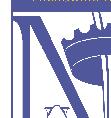
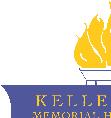


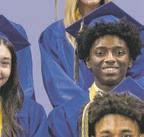




SATURDAY, OCTOBER 14, 2023


















Continuous self-guided tours between 10:00 AM and 1:00 PM
Students entering 6th, 7th, or 9th grade and their parents who are seeking a qualitative Catholic education in the Marianist Tradition are invited.



See the Brother Joseph C. Fox Latin School, a division of Kellenberg Memorial that provides a qualitative Catholic Education for 6th, 7th, and 8th grade students.




Experience more at Kellenberg Memorial Through our academic, spiritual, athletic, and extracurricular programs.
















1400 Glenn Curtiss Blvd. Uniondale, NY 11553
Admissions Office: (516) 292-0200 Ext. 210










KELLENBERG.ORG

The start of the school year means new classes, new school supplies and for many kids, new shoes. If the back-to-school shopping list includes a new pair of sneakers, it’s important to choose a shoe with good support that fits well, according to pediatric orthopedic surgeons at Hospital for Special Surgery (HSS).
“When parents bring their children in with foot pain or an injury, the first thing I do is ask about their shoes. The problem is often inappropriate or poorly fitting footwear,” said Dr. John Blanco, who sees young patients at HSS Long Island in Uniondale and at the main hospital in New York City. “Footwear has a lot to do with how their feet function day to day, especially during athletic activities.”
A sneaker should fit well in terms of length and width, have good arch support and be made of sturdy materials.
“If we could make sure shoes were the right size, had proper support and were laced up appropriately, we would probably solve 80 percent of the basic foot problems we see in kids,” Blanco said.

While many people have no problem with sneakers that they buy off the shelf, a specialty store with experienced staff can measure the foot and help select the best shoe for one’s foot type, according to Blanco. You don’t need to spend a lot of money to get a good shoe.
“The price of the sneaker has nothing
to do with the quality of the shoe,” Blanco said. “I see kids all the time with shoes that may look fancy on the outside, but you look inside and see that they don’t provide support.“
Blanco recommends lace-up sneakers over those that use Velcro, which provides less support. It’s important for young people to lace up their shoes each time they put them on.

“Many children and teenagers are in the habit of slipping their foot into and out of a shoe without lacing it up appropriately, and this affects the way the shoe fits,” he explained. “A loose shoe can leave someone more prone to injury if playing a sport.”
Laces should go all the way to the very top hole and be tied snugly, as properly laced shoes give more stability to the foot.
When choosing sneakers, Joseph Molony, a physical therapist and manager of the Young Athlete Program at HSS, recommends people start with a good quality name-brand shoe. You don’t need to buy a top-of-the-line luxury
model, but a solid name-brand shoe will generally be well constructed of quality materials. He offers additional advice when shopping for sneakers:
• Identify which brand fits best. Each company uses a specific foot mold when designing shoes. You may need a narrower heel, a wider toe box or a higher arch. Try on different brands to see which design is a good match for your foot structure. Once you’ve identified which one fits well, you can generally stick with that brand.
• The shoe should fit comfortably and snugly with no gaps between your foot and the inside of the shoe. For example, someone with a narrow foot may not do well with a shoe with a wide toe box.
• The shoe shouldn’t be so tight that it rubs against your foot in certain spots.
• Your heel should not rise up out of the shoe when you walk. Even if the shoe feels comfortable, the heel should not slide up and down.
• If you find a shoe you like in a store and it fits well, you can see if it’s available online for less money. If the color you want isn’t available in the store, you may
also be able to find it online.
• Be careful when considering soft, flexible, cross-training and minimalist sneakers (if you can roll them up or twist them easily, they would generally fall into this category). While they may be comfortable and fine for some, they are not the best choice for kids who need shoes with support.
• Runners may want to alternate running shoes every other day since shoe materials often take some time to recover their shape. You end up buying the same number of shoes each year when you rotate them.
• Wear the appropriate shoe for the athletic activity. Although cross-training shoes can be used for various athletic activities, many sports require specific shoes. Running shoes are not appropriate for court and field sports.
It’s important to retire shoes once they’re worn out. Many teens hold on to them too long.
“The main problem I see is that people wear their shoes to the very end,” Blanco said. “The shoelaces are broken, their toe is ripping through the side of the shoe, the sole is worn down, but they love those sneakers.”
Once a shoe is worn out, it no longer provides the support and protection needed for day-to-day activities, let alone sports.
—Hospital for Special Surgery (HSS)

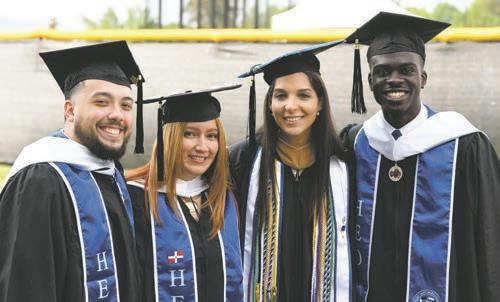
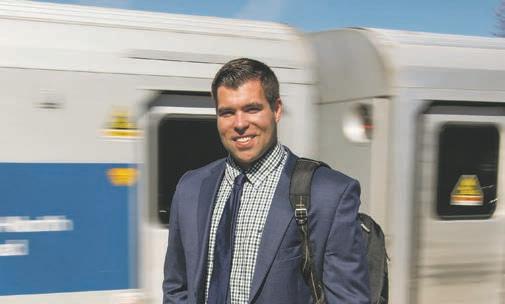





Educators, administrators, parents and anyone who’s been to a school or college campus lately knows students are struggling like never before. They are depressed, anxious, and—increasingly—even suicidal. Many are battling substance misuse or addiction. And horrifically, more young people are dying each day from accidental fentanyl overdoses. Facing any of these problems is hard enough on its own. But when students feel added shame, blame, and isolation for these diseases, it only adds to their struggle.
The stigma around mental health and substance misuse runs deep. But there’s a lot schools can do to stop it—if they’re willing.
“Many schools fear being labeled a ‘drug’ school, and while this kind of thinking is misinformed and misplaced, it repeatedly happens,” said student well-being activist David Magee, author of Things Have Changed: What Every Parent (and Educator) Should Know About the Student Mental Health and Substance Misuse Crisis (Matt Holt, August 2023, ISBN: 978-1-6377439-6-6) and award-winning book Dear William: A Father’s Memoir of Addiction, Recovery, Love, and Loss
“Schools can’t have a drug problem, though, because they are merely collections of students from families within the community,” he asserted. “Substance issues are family and community issues that show up in our schools, colleges, and universities. The same is true of mental health disorders, and countless students at many upstanding schools suffer in both areas.”
And yet, some schools have feared such labeling to the point that they don’t offer the needed education about substance misuse. But now it’s crunch time. The pandemic shed light on mental health struggles and brought the need for change to the forefront.
“Schools and colleges are in a great position to help students navigate these challenges,” said Magee, who has dedicated his life to giving students the tools they need to thrive and find the joy they crave more than anything else. “It begins with breaking down the stigma and letting students—of all ages—know that they are loved and supported.”
This is a personal mission for Magee, whose firstborn son, William, died from an accidental drug overdose in 2013. It’s why he founded the William Magee Institute for Student Wellbeing at the University of Mississippi, which seeks to understand how best to prevent or break the cycle of unhealthy habits and addictions that plague so many college students. He also founded the William Magee Center for AOD
and Wellness Education.
Here are six ways educators can help stop the stigma and get students the help they need.
1
Tackle the stigma head on. Everyone involved in higher education should be united to normalize mental health issues and substance misuse. This is the only way young people will feel comfortable talking about their struggles or asking for help.
Share real-life examples of people coping with mental health or substance use disorder to put a face on it.
Avoid using judgmental tones or words about anyone who suffers mental health or substance use disorder. (And be sure to speak up if you hear a student being judgmental.)
Let children know that substance use disorder is a treatable disease, not a personal weakness.
If you’ve received counseling or struggled, share that experience with a student who needs to feel less alone.
2
Make use of peer-to-peer educators… There’s a wise saying that goes, “Students get students on drugs, and students can get students off drugs,” (or
keep them from starting in the first place). Magee urges elementary, middle, and high schools and universities to create peerto-peer programs to educate and support students. These student-led organizations are proven to be effective at educating young people about mental health issues and substance misuse.
3
…And start these conversations much sooner. It’s critical to start these conversations earlier than you might think.
Imagine if students, beginning in the sixth grade, received repeated engagement with teams of storytelling peers sharing personal experiences and clearly stated facts of how those students can find and keep joy. By breaking the stigma upstream and reaching youth earlier, we turn the tide of the epidemic today and tomorrow as those students will be better-prepared parents and mentors one day.
Educators can help instill these tools in students of every age.
Plenty of sleep each night (not once in a while). Sleep deprivation can cause behaviors mimicking the symptoms of ADHD, along with rollercoaster emotions and impulses and increased risk for anxiety and depression. Young people need eight to ten hours of sleep each night.
Daily exercise, fresh air, and sunlight. A daily walk or run sends invigorating blood to the brain and body, making students feel more alive and alert while improving their mood. Encourage students to get movement every day.

Intentional social media use. There’s nothing wrong with using social media, but it’s not healthy to be online 24/7. Advise students to monitor their stress and anxiety levels (pay attention to feelings of nervousness or inferiority) and know when to take a break or stop altogether.
5Make counseling services visible and accessible. Any student should have access to mental health services. In a grade school setting, this might be the guidance counselor, school psychologist, social worker or school nurse. Most college campuses provide counseling centers that offer mental health support. What’s most important, though, is that students know what programs, services or treatments are available, and that they know how to make an appointment.
6Help students stay in school while they get the treatment they need. It’s crucial that schools create a clear path for students navigating substance misuse. All too often, they must choose between attending classes (or finishing out the school year) and seeking treatment. Students should be able to get the help they need without academic consequences. Schools and universities find ways to accommodate recovery treatments the way they would any other disease (because substance use disorder is, in fact, a disease). If possible, students should have the option to attend outpatient programs while remaining in school.
4
Talk to students about the “tools” for well-being, health and success. Creating sustainable joy begins with healthy habits. All students need a “toolbox” of habits, practices, and mindsets to help them maintain their mental health, avoid dangerous behavior like substance misuse, and create the wellness they crave.
None of these solutions are simple. But the mental health and substance misuse crisis has escalated to the point that many schools feel they can no longer ignore it. Nor should they.
“Stopping this crisis depends on parents, educators, students and communities all working together like never before,” said Magee. “Having caring educators join in these efforts will help our children—of all ages—find the health and happiness they truly deserve.”
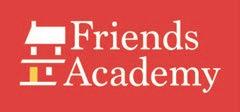





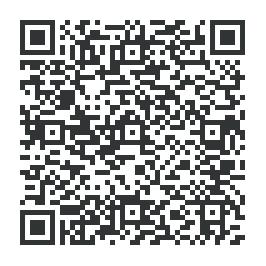
















































































































All Our Lady of Mercy Academy students have a chance to explore leadership opportunities, arts, athletics, community service and many other extracurricular activities, to discover talents they never knew they had.


